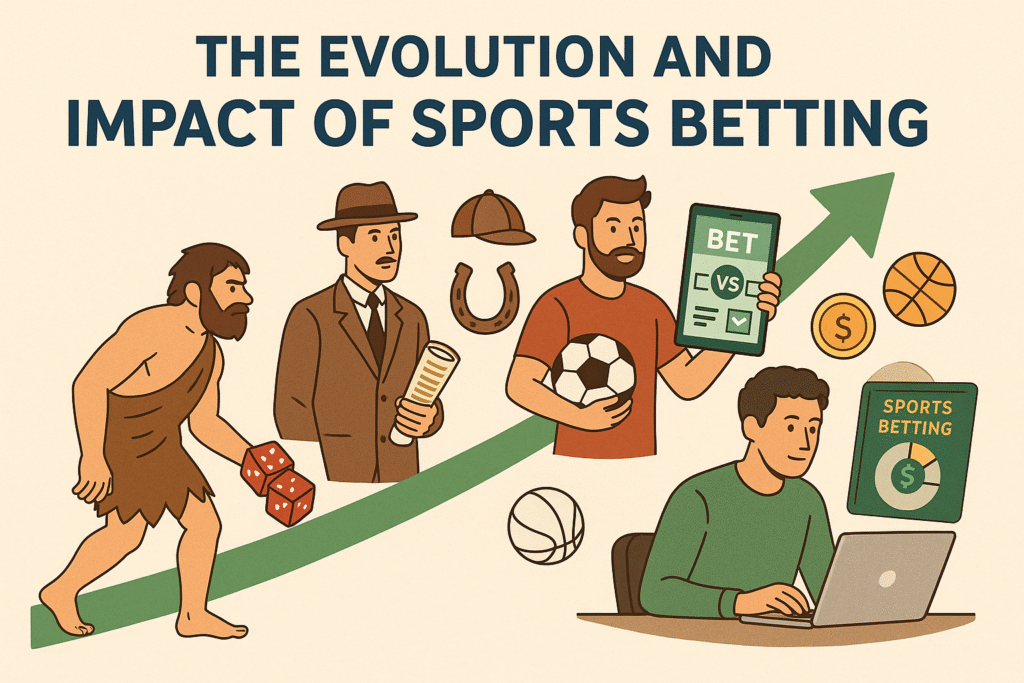
Sports betting has transformed from a niche underground activity into a global industry projected to exceed $153 billion by 2029. This article explores its historical roots, modern mechanics, regulatory challenges, and societal implications, supported by insights from experts and historical sources.
Historical Foundations
Sports wagering dates back millennia, with early records of gambling on athletic contests in ancient Greece and Rome. However, its modern form emerged alongside organized sports leagues. For example, horse racing became a cornerstone of betting culture in 17th-century England, earning the moniker “Sport of Kings” under royal patronage. By the 19th century, bookmakers formalized odds-setting, enabling structured betting markets.
The U.S. saw early scandals, such as the 1877 Louisville Grays baseball team’s match-fixing incident, which highlighted vulnerabilities in unregulated systems. Legalization efforts began in earnest in 1949 when Nevada authorized sportsbooks, though high taxes initially stifled growth. The repeal of a 10% federal tax in 1974 catalyzed expansion, with handle soaring from $825,767 to $26 million within two years.
Mechanics of Modern Betting
Contemporary sportsbooks offer diverse wagering options, each with unique risk-reward dynamics:
| Bet Type | Description |
|---|---|
| Moneyline | Wagering on a team to win outright. Favored teams offer lower payouts. |
| Point Spread | Betting on a team to outperform a handicap (e.g., Miami −3.5 vs. Oklahoma). |
| Futures | Long-term bets on championships or season outcomes, often with high payouts. |
| Prop Bets | Wagers on specific in-game events (e.g., “next player to score”). |
Live betting has surged in popularity, enabled by 5G and AI-driven platforms that update odds in real time. Microbetting—small stakes on granular outcomes—appeals to younger demographics seeking instant engagement.
Regulatory and Ethical Challenges
The 2018 U.S. Supreme Court decision to overturn the federal sports betting ban sparked a regulatory gold rush, with 54% of Americans now supporting legalization. However, this rapid growth has raised ethical concerns:
“It’s just part of our sports now…You see it everywhere.”
Athletes face unique risks, as highlighted by NFL cornerback Jonathan Jones:
“I can risk my life so that my team wins, but I can’t risk 1K on my team winning.”
Regulators like the UK Gambling Commission enforce strict responsible gambling measures, including spending caps and age verification. Meanwhile, emerging markets like Brazil and India are grappling with balancing economic benefits against social costs.
Technological Innovations
AI and blockchain are reshaping the industry:
- Predictive analytics optimize odds and personalize user experiences.
- Cryptocurrencies enable anonymous, fast transactions, with Bitcoin bets expected to rise sharply by 2025.
- Live streaming integration allows bettors to watch events and place wagers simultaneously, boosting engagement.
The Future of Sports Betting
Experts forecast a $153.71 billion market by 2029, driven by virtual sports, fantasy leagues, and localized offerings in emerging markets. However, sustainability hinges on addressing problem gambling. As Billy Walters, a professional gambler, notes:
“The business of sports betting…is closer to psychological warfare between bettor and bookmaker.”
Sports betting’s journey from ancient pastime to digital behemoth reflects broader societal shifts toward entertainment-driven economies. While technological advancements and legalization promise growth, stakeholders must prioritize ethical frameworks to mitigate addiction and corruption risks. As the industry evolves, its success will depend on balancing innovation with accountability.